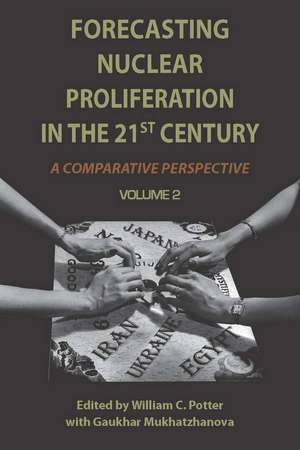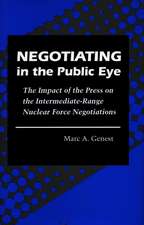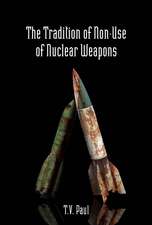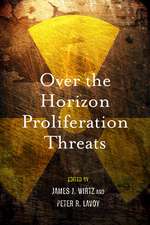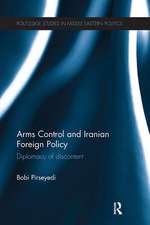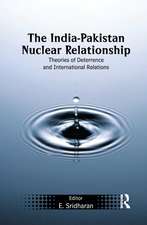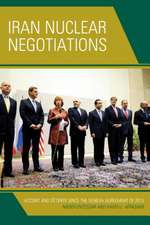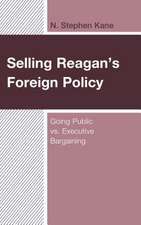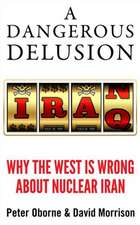Forecasting Nuclear Proliferation in the 21st Century: Volume 2 A Comparative Perspective
Editat de William Potter, Gaukhar Mukhatzhanovaen Limba Engleză Paperback – 2 aug 2010
This volume provides the most comprehensive and authoritative projections of nuclear proliferation over the next decade and offers a range of practical nonproliferation measures.
The authors address a set of overarching questions regarding the propensity of selected states from different regions of the world to "go nuclear," the sources of national decisions to do so, and the potential for one state's proliferation behavior to impact on that of other states. In addition, authors address the most effective policy tools available for impeding nuclear weapons spread. Although this volume is not the first effort to look systematically and comparatively at nuclear decision-making, it is unique in its combination of future orientation, comparative perspective, and emphasis on harnessing the insights from social science theory and country case studies to aid policy makers in forecasting nuclear proliferation developments.
The authors address a set of overarching questions regarding the propensity of selected states from different regions of the world to "go nuclear," the sources of national decisions to do so, and the potential for one state's proliferation behavior to impact on that of other states. In addition, authors address the most effective policy tools available for impeding nuclear weapons spread. Although this volume is not the first effort to look systematically and comparatively at nuclear decision-making, it is unique in its combination of future orientation, comparative perspective, and emphasis on harnessing the insights from social science theory and country case studies to aid policy makers in forecasting nuclear proliferation developments.
| Toate formatele și edițiile | Preț | Express |
|---|---|---|
| Paperback (2) | 208.69 lei 3-5 săpt. | |
| Stanford University Press – 20 iul 2010 | 208.69 lei 3-5 săpt. | |
| Stanford University Press – 2 aug 2010 | 220.13 lei 3-5 săpt. | |
| Hardback (2) | 723.38 lei 6-8 săpt. | |
| Stanford University Press – 20 iul 2010 | 723.38 lei 6-8 săpt. | |
| Stanford University Press – 4 aug 2010 | 731.22 lei 6-8 săpt. |
Preț: 220.13 lei
Nou
Puncte Express: 330
Preț estimativ în valută:
42.12€ • 44.29$ • 34.80£
42.12€ • 44.29$ • 34.80£
Carte disponibilă
Livrare economică 26 martie-09 aprilie
Preluare comenzi: 021 569.72.76
Specificații
ISBN-13: 9780804769716
ISBN-10: 0804769710
Pagini: 488
Dimensiuni: 152 x 229 x 28 mm
Greutate: 0.64 kg
Editura: Stanford University Press
Colecția Stanford Security Studies
ISBN-10: 0804769710
Pagini: 488
Dimensiuni: 152 x 229 x 28 mm
Greutate: 0.64 kg
Editura: Stanford University Press
Colecția Stanford Security Studies
Recenzii
"Students, academics, and, yes, practitioners will find much to admire in the analysis contained in both volumes . . . The two volumes add to a rich qualitative literature on proliferation, while applying rigorous quantitative analysis to proliferation cases. The contributing factors for proliferation are widely acknowledged and include domestic drivers, economic and security concerns, as well as regime and leadership types . . . The two-volume set on Forecasting Nuclear Proliferation in the 21st Century is helpful in many valuable ways. There are sound analytical reasons for concluding that, despite the Iranian and North Korean nuclear programs, the sky is not falling, nor is it likely to fall over the next decade."—Michael Krepon, Nonproliferation Review
"This impressive—nearly 800 pages—collective study aims at taking a fresh look at the causes of nuclear proliferation, with the goal of enhancing the ability of analysts and policymakers to forecast its future and improve its prevention. It effectively combines quantitative and qualitative approaches, and includes a systematic review of the literature, from the early studies of proliferation dynamics of the 1960s to the latest statistical analyses of the past decade, as well as a range of case studies that goes beyond the 'usual suspects' to include Australia, Ukraine and Yugoslavia."—Bruno Tertrais, Survival
"This volume contains 12 case studies and offers many insights into the decision-making processes in the countries studied. It will be invaluable to those interested in proliferation analysis, and to students and researchers."—T.V. Paul, James McGill Professor of International Relations, McGill University
Notă biografică
William C. Potter is Director of the James Martin Center for Nonproliferation Studies and Sam Nunn and Richard Lugar Professor of Nonproliferation Studies at the Monterey Institute of International Studies. Gaukhar Mukhatzhanova is a Research Associate at the James Martin Center for Nonproliferation Studies at the Monterey Institute of International Studies.
Descriere
This two-volume set is the output from an extensive research project focused on developing the first forecasting model for nuclear proliferation. The Case Study volume (Volume 2) addresses a set of overarching questions regarding the propensity of selected states from different regions of the world to "go nuclear," the sources of national decisions to do so.
